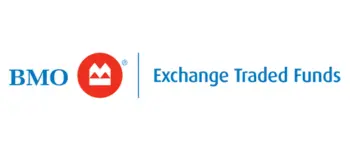Skip the Headaches of Landlording — These REIT ETFs Do the Heavy Lifting Instead
Key takeaways
Diversified Real Estate Exposure – Each ETF provides broad exposure to the Canadian real estate sector, including retail, industrial, and residential REITs.
Yield-Focused Investments – Canadian REITs are known for their high dividends, making these ETFs attractive to income-focused investors.
Interest Rate Sensitivity – Rising or falling interest rates significantly impact REIT performance, affecting borrowing costs and investor demand.
One ETF I like way better than the ones on this list.Real estate is a fantastic investment option that’s made many investors wealthy. Just like a wide range of Canadian dividend stocks, it’s an easy and clear choice to include in your investment mix.
Some people take this a step further and create their real estate empire, consisting of a few rentals in their city. This is not an ideal way to get your real estate exposure. Why not just acquire residential REITs instead?
Having your own rental property is buying yourself a part-time job
Let’s look at why owning these REITs is a better idea than becoming a landlord.
First, you’ve got to rent the place, a process that might involve multiple showings and a bunch of back and forth. Next up is doing all the lease paperwork, checking your tenant’s references, etc.
Then the property must be maintained, and you’ll have to chase the tenant for their rent. And finally, on top of all that, you’ll have to do up the books and keep a detailed record of all expenses.
Yes, there is the benefit of long-term capital appreciation of the property and the ability to store real estate equity to build your net worth. However, owning physical entities is undoubtedly a pain in the rear.
A top Canadian REIT ETF is the better investment choice here. Many investors looking to learn how to invest in stocks and real estate are flocking to them.
It’s a passive investment comprised of shares of the best Canadian REITs, and most pay monthly dividends.
You don’t even have to choose individual REITs to own; buying a Canadian ETF that consists of REITs gives you instant diversification over real estate types (like retail, apartments, industrial, and office REITs, among others) and location.
The emergence of ETFs here in Canada, especially niche ones covering specific areas like oil and gas ETFs, banking, bonds, or even REITs, has made diversification ridiculously easy. Much easier than buying individual stocks.
As a result, just one of these ETFs will give you an instant portfolio that spans Canada and even into other nations.
If you’re looking for broader exposure to the market and a regular income stream, you’ve come to the right spot. There’s an easier way to get exposure to the real estate sector. And that is through REITs.
The recent struggles of REITs has resulted in some opportunities when it comes to REIT ETFs
REITs have had a really tough go since interest rates started rising in 2022. Rapid inflation caused policymakers to act quickly, and as a result, many individual REITs realized significantly higher mortgage rates on property renewals.
In addition, many REITs here in Canada focus on commercial and office spaces. These industries changed materially in a post-pandemic environment as work-from-home gained popularity, and online retailers like Amazon shifted many consumers to shop from their computers instead of going to malls.
On the residential side of things, many residential REITs in Canada are exposed to real estate hotbeds like Vancouver and the GTA. Property values due to a surging real estate market hit bubble-like levels in these areas during the pandemic. Property values have plummeted since the bubble burst in these areas. This has put a lot of pressure on residential REITs.
However, with negative sentiment comes opportunity. Many Canadian REITs are trading at substantial discounts. If the market eventually starts to reward these companies again, there should be some solid upside here. Instead of owning individual REITs, one can quickly diversify nationwide with a single ETF.
In this article, I will review some of the top Canadian REIT ETFs to do so.
Four top Canadian REIT ETFs to own right now
Equal-weighted Canadian REIT exposure
BMO Equal Weight REITs Index ETF (TSX:ZRE)

ZRE provides exposure to a diversified mix of Canadian REITs, using an equal-weight strategy. This approach reduces concentration risk by ensuring all holdings have a similar impact on performance.
Market-cap-weighted Canadian REIT exposure
iShares S&P TSX Capped REIT Index ETF (TSX:XRE)

XRE tracks the S&P/TSX Capped REIT Index, providing exposure to the largest Canadian REITs by market capitalization. This means larger REITs, such as residential and industrial leaders, have a greater impact on returns.
Cost-efficient Canadian REIT exposure
Vanguard FTSE Canadian Capped REIT Index ETF (TSX:VRE)

VRE tracks the FTSE Canadian Capped REIT Index and provides a well-diversified, low-cost way to access Canada’s real estate market. The ETF balances exposure across major REITs while maintaining cost efficiency.
Actively managed Canadian REIT ETF
CI First Asset Canadian REIT ETF (TSX:RIT)

RIT is actively managed, allowing for tactical adjustments based on market conditions. It includes a mix of REITs, developers, and real estate service companies, offering broader exposure beyond traditional REIT ETFs.
What makes a good REIT ETF?
There are upwards of 10 different Canadian REIT ETFs in Canada. What makes one better than the others?
It comes down to three factors.
Firstly, perhaps most importantly, you want a REIT ETF with a low management fee.
The fund’s management expense ratio comes right out of your investment returns. Minimizing them is an easy way to increase your bottom line.
Next, you’ll want to ensure the REIT ETF is appropriately diversified.
Some only have exposure to the largest individual REITs, meaning many smaller ones are excluded. These smaller companies are underfollowed and have higher growth potential, two critical factors that could lead to better long-term returns.
And finally, liquidity is a factor.
Small ETFs that don’t trade much are annoying to buy. They’re also more likely to get closed, which is a particularly irritating problem for passive investors. It’s far better to stick with the bigger ones.
Let’s take a closer look at four top Canadian REIT ETFs to own right now, each with its different little twist on the sector.
The bottom line
All of these REIT ETFs are solid. However, there are two here that stand out, and that is RIT and VRE. VRE’s low fees are a huge advantage, immediately translating into higher returns all else equal.
RIT’s active management has paid off in a big way. Although never guaranteed, management has shown the ability to pick the suitable REITs in many different environments.
With the security of the largest ETF provider behind you, investors can be confident the Vanguard ETF will be around for decades to come. But I don’t think any of these REITs funds are going anywhere anytime soon.
On another note, it’s essential that, if possible, you tax shelter these REITs. Income taxes on real estate investment trusts are not taxed as dividends. If you want to maximize your distributions, placing them in a tax-sheltered account is a wise choice.
It isn’t the be-all-end-all, but indeed an easy trick to increase your monthly income and pay less to the tax man.

